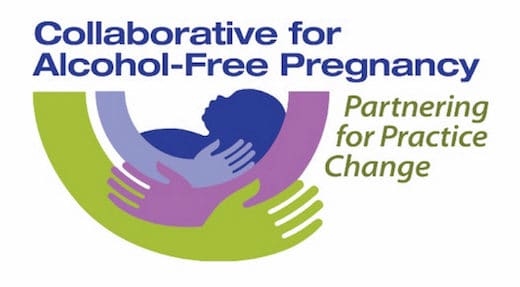Prenatal exposure to alcohol is the leading preventable cause of birth defects and intellectual and neurodevelopmental disabilities. Up to one in 20 children in the United States are affected by Fetal Alcohol Spectrum Disorders (FASD), the general term for the range of life-long adverse cognitive, behavioral, and physical effects caused by prenatal alcohol exposure.
Learning disabilities, diffculty with attention and memory, problems with social interactions, poor reasoning and judgment skills — the effects of in-utero damage to the brain and central nervous system — are among the challenges that individuals living with FASD may face.
The good news: FASD is completely preventable.
 “Encouraging women to choose healthy behaviors before they get pregnant is essential to reducing the significant personal and social costs of FASD,” said Mary Velasquez, director of the Steve Hicks School of Social Work’s Health Behavior Research and Training Institute.
“Encouraging women to choose healthy behaviors before they get pregnant is essential to reducing the significant personal and social costs of FASD,” said Mary Velasquez, director of the Steve Hicks School of Social Work’s Health Behavior Research and Training Institute.
With a $1 million grant from the Centers for Disease Control and Prevention (CDC), Velasquez and the institute team are leading a partnership with the National Association of Social Work (NASW) to represent social work in the CDC’s national cross-discipline FASD initiative.
For this FASD initiative from the CDC, social work researchers are working alongside colleagues from family medicine, pediatrics, obstetrics and gynecology, medical assistants, and nursing to reduce risky drinking and the incidence of FASD by improving healthcare practice, education, and awareness among healthcare professionals.
The initiative’s goal is to improve healthcare practices at the systems level by facilitating implementation of evidence-based practices and through the dissemination of science-based prevention messaging.
As part of this effort, the team at the Health Behavior Research and Training Institute has created clinical practice updates and related resources for NASW, and developed policy recommendations on FASD prevention among sexually active youth that have been incorporated into Social Work Speaks: NASW Policy Statements, 10th ed. (2017).
Additionally, the team worked with practitioners from other disciplines to create CDC’s online professional development training modules on prevention, diagnoses, and building FASD-informed interprofessional teams. The modules, with CEU credits, are available free of charge at at the CDC’s recently launched website, FASD Training and Resources.
Posted July 25, 2018.


